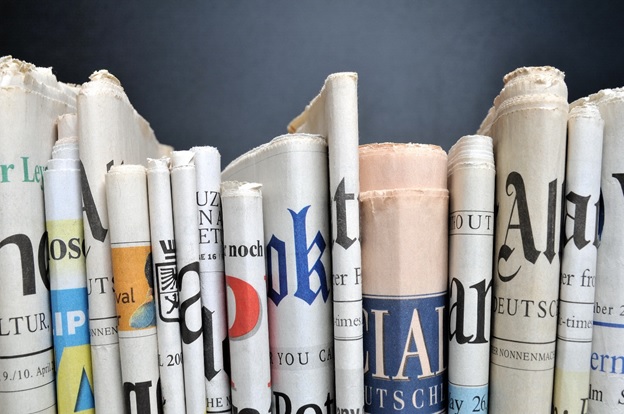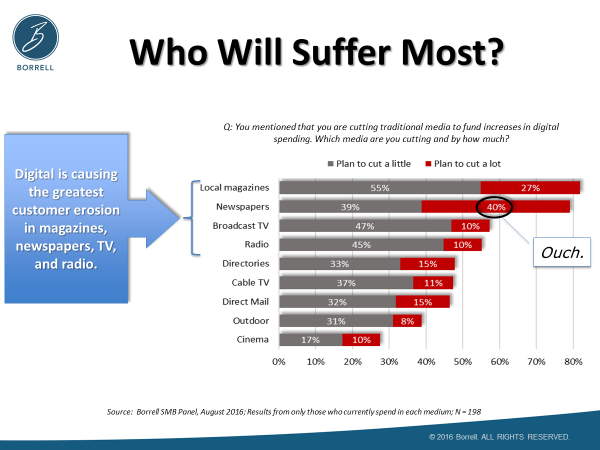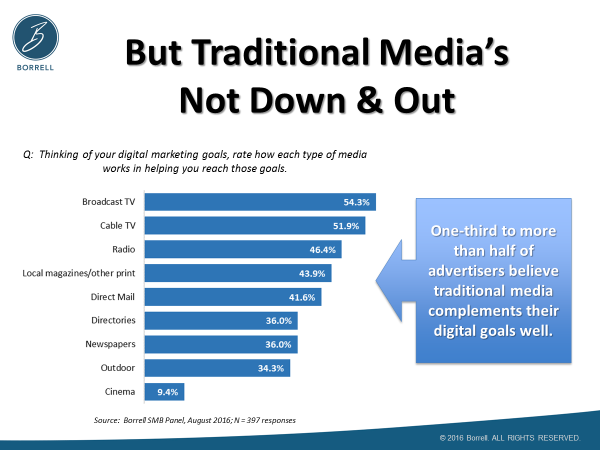
How was your summer? If you’re in the newspaper business, the response is a clear cut thumbs down. In an essay for the Reuters Institute earlier in the year, New York Times CEO Mark Thompson gave a response that Politico’s Joe Pompeo noted comes right out of a Game of Thrones script:
“Winter really is coming for many of the world’s news publishers.”
The Pew Research Center’s 2016 State of the New Media Report announced the past year was the worst for the newspaper business “since the recession.” The losses both in terms of dollars and staffing continue.
Politico notes the same scenario is repeating itself in the UK and around the world. As news readership and news story discovery moves to social and mobile, revenues simply cannot keep pace with the consumer demand for digital content.
Ironically, The New York Times may have thrown out the first snowball earlier in the month, announcing it will no longer devote reporters to coverage of the cultural scene in the New York City metro. You read that correctly. Deadline.com reported a series of layoffs, accompanied by a memo from the Times’ Metropolitan editor announcing “the resources and energy currently devoted to these local pages could be better directed elsewhere.” This policy ends the newspaper’s coverage of restaurants, art galleries, theaters, and other cultural outlets.
Just how bad is it in the world of print journalism?
The word “newspaper” is disappearing. You read that correctly, too.
Now the Newspaper Association of America – the trade group that has represented news publishers since the late 1800s – announced it’s dumping the word “newspaper” from its name.
It will now be known as the News Media Alliance.
The New York Times reported that this brand change is simply due to the declining number of newspapers. And in fact, the word itself has disappeared from our daily conversation.
Here at Jacobs Media, we have been engaged in a series of interviews with Millennials on behalf of the Public Radio Program Directors and a group of 15 public radio stations. In these exchanges, we’re discovering that many of our young respondents read a “newspaper” every day. But when you drill a bit deeper, this readership is nearly exclusive to the online edition. None reads a physical newspaper.
It gets worse. A new Borrell study reveals that more than three-fourths of businesses that will increase their digital ad spend next year will do so by cutting back on traditional media. While radio will most certainly take a hit, it’s print – led by newspapers – that will experience the biggest drops.

What does this mean for radio? On the local level, it means opportunity. When The New York Times bids adieu to its local cultural reporting, how many radio stations could fill this void with podcasts and other web publishing outlets?
While radio might not be able to compete with music sources or national news services, its ability to zero in on its own communities has never been more promising. While national dollars are erratic or in decline for many stations, local advertising presents robust opportunities to cash in and develop a stronghold, especially in the wake of newspapers fading off into the sunset.
Cashing in on the opportunity will require a smart strategy and much effort, not just in content creation but in the ways that sales reps approach local businesses. The Borrell study has a lot to say about how many small companies feel pestered by media sellers who may not be approaching the opportunity as strategically and diplomatically as they could.
For decades, newspapers have disproportionately benefited from their traditional, grandfathered positions, as well as blind faith agency and local business beliefs they’re a “must-buy” medium. Not anymore.
For local radio, those fissures in the foundation of local newspapers – including The New York Times – spell opportunity.
Pass me the Sports section.
Thanks to Gordon Borrell for the use of the above data. Their LOACWest event in San Francisco on November 1-2 is an excellent forum for gaining a better understanding of the local advertising environment. Details here.
- What Is It With Female Robot DJs? - April 30, 2025
- Why “Dance With Those Who Brung You” Should Be Radio’s Operating Philosophy In 2025 - April 29, 2025
- The Exponential Value of Nurturing Radio Superfans - April 28, 2025




Hi Fred, Seems I’m weighing in a bit lately.
“Newspapers” may be in free-fall, but the “print” and e-book world is still steady and growing. Kind of like whether you’re in the business of “radio” or “media” today.
It was great to see Podtrac’s release of it’s first “TOP 20 Monthly List” of podcasts this morning, ranked by unique monthly U.S. audience. It almost felt like I was reading the first of what might be the new “New York Times Best Seller List” in a strange sort of way, although of course they represent two very different offerings.
At the same time it’s disheartening see more of that “radio” thinking that centers in “for me to win, someone else has to lose”, with the newspaper scenario you’re talking. Radio would do well to focus on its own content, innovation, new future revenue paths, and the people that will drive that. In many ways it’s not too many steps behind the fourth estate’s sad scenario if it doesn’t.
When the printed word diminishes, it reduces us all, even though e-book and mobile are successfully transporting that word to the screen.
Radio hasn’t really been interested in podcasts, or screens, to date, even though some of it’s disenfranchised “stars” have made a very good fist of those environments.
I understand your commentary here is focused on the “newspaper”… but radio could be tomorrow’s headline for an equally concerning reasons.
Lee, the threat is not lost on me. If radio doesn’t play this right, it’s just a few hundred feet up the. Each from newspapers – and the tidal wave is coming.
My preference is to see the opportunity but only a fool would fail to see the threat. Thanks for the cautionary comment.
Absolutely Fred. Only radio hasn’t exactly been grasping the opportunities in recent times; and seems to see itself as impervious to the threats.
True that, Lee. Thanks for continuing to weigh in and for reading our blog.